Wouldn’t it be nice to check your thyroid at home?
If you are someone with thyroid disease, and taking thyroid medication, then you know it can be difficult to get all of the right thyroid tests checked by your doctor.
What if you could test your own thyroid at home instead of relying on your doctor?
The good news is that there are ways to approximate how well your thyroid is working at home and that’s exactly what we are going to talk about today.
The only issue is that these tests are not quite as accurate as blood work which means you may still need to get your blood drawn at some point.
Diagnosing Hypothyroidism
We’ve become accustomed to thinking that the only way we can look at how well our thyroid is functioning is by ordering certain blood work.
While blood work is great and necessary, it isn’t the only way to look at how well your thyroid is working.
Remember:
Your thyroid controls many different functions in your body ranging from your heart rate (1) to your body temperature (2), and everything in between (3).

Because your thyroid impacts so many different systems we can look directly at those systems to get an idea as to how well the thyroid is functioning.
The only downside to using this method is that, in some cases, more than just your thyroid contributes to the regulation of certain systems.
But this isn’t a huge deal because you can actually test multiple systems to get a fairly good idea of how your thyroid is doing.
Can you Test Yourself At Home?
The answer is yes, sort of.
While you can’t draw your own blood to check your thyroid function, you can take advantage of several other strategies designed to tell you how well your thyroid is functioning.
It’s important to realize that these tests are not necessarily more accurate than getting your blood tested, however, so I still recommend that you get your blood work from a physician.
These tests can, however, give you an idea as to whether or not your symptoms are related to your thyroid or to something else.
If you have many of the symptoms of hypothyroidism then you should consider using these tests to determine if you need further testing or treatment.
DOWNLOAD FREE RESOURCES
Foods to Avoid if you Have Thyroid Problems:
I’ve found that these 10 foods cause the most problems for thyroid patients. Learn which foods you should avoid if you have thyroid disease of any type.
The Complete List of Thyroid Lab tests:
The list includes optimal ranges, normal ranges, and the complete list of tests you need to diagnose and manage thyroid disease correctly!
#1. Your Symptoms
Believe it or not, your symptoms are a clinical clue as to what is happening in your body.
Why?
Because your thyroid, as a hormone, helps regulate and control many important systems in your body.
If your thyroid is not functioning properly because it is either too high or too low, then you will feel it.
What you feel is referred to as your symptoms and it’s an important diagnostic clue as to what is happening (4).
Not only are your symptoms important for diagnosis, they are also very important when and if you get treatment for your thyroid.
As you attempt to improve your thyroid, either through conventional or natural means, you should see an improvement in your symptoms.
If you don’t then that may be a sign that you are NOT on the right track.
How do you do it?
You can find a printable list of thyroid symptoms in my free resource section here.
All you need to do is download the PDF, print it out, and check the symptoms that you are experiencing.
If you have more than 5+ symptoms on that list (of either hypothyroidism or hyperthyroidism) then you should proceed on to the tests below.
#2. Your Body Temperature
Another way to approximate thyroid function is by tracking what is known as your basal body temperature.
Your basal body temperature is the lowest temperature that your body gets to.
Many women, especially those trying to conceive, check their basal body temperature daily to try and identify when they ovulate (5).
You can actually measure this value daily and track it over time and use it as a way to determine how much thyroid hormone your body is producing.
The reason this works is that your thyroid gland helps to manage your metabolism and the number of calories that you burn.
If your thyroid is slow or sluggish then the number of calories that you burn each day will be lower than normal and, as a result, your body temperature may drop.
This is why people with hypothyroidism have severe cold intolerance (6) (meaning they don’t like to be cold)!
The exact opposite occurs if you have hyperthyroidism (meaning too much thyroid hormone).
If your body is producing too much thyroid hormone then your body temperature will be higher than normal.
How do you do it?
The best way to check your body temperature is first thing in the morning right before you get out of bed.
This works best if you have a basal thermometer right by your nightstand so that you can use it right when you wake up.
All you need to do is check your body temperature and then keep track of it with a daily log.
You can check your temperature from any location but I find the most consistent temperature in the under-arm and under the tongue or in the mouth.
This test isn’t the most accurate way to check your thyroid but it’s easy and cheap to do.
It’s not the most accurate because there are many other factors that influence your body temperature, including other hormone imbalances, illness, stress, lack of sleep, and even prescription medications.
#3. Your Resting Heart Rate
Similar to checking your temperature, you can also check your resting heart rate.
This idea runs off a similar principle as your basal body temperature.
Your thyroid helps to regulate and control your heart rate (7) which is a reflection of how much energy you are burning (your metabolism) and thus the amount of heat that you produce.
If your thyroid is low then your resting heart rate tends to be lower than normal as well.
If your thyroid is high then your resting heart rate tends to be higher than normal.

Monitoring your heart rate is also helpful as you start or adjust your dose of thyroid medication (or thyroid-blocking medication) because you should see changes in your heart rate as you influence thyroid hormone.
If you are taking thyroid medication for hypothyroidism then you should see an increase in your heart rate as you take more medication. This effect is more pronounced with thyroid medications that contain T3.
If you have hyperthyroidism, and you are taking thyroid-blocking medication, then you should see your resting heart rate drop down to a more normal level.
How do you do it?
Much like checking your body temperature, the best way to check your resting heart rate is first thing in the morning right before you get out of bed.
There are a few ways that you can check your pulse:
The first is to simply place your finger on an artery (usually in your wrist) and count how many times your heart beats in a 15-second time frame.
You can then multiply that by 4 to get the average amount of beats per minute.
You would then keep a journal or log of what your resting heart rate is over the next several weeks.
You can use this video to help you find your pulse:
Another, perhaps easier way, is to use wearable devices such as an apple watch or Fitbit.
These constantly monitor your heart rate and give you both an average heart rate as well as an on-demand heart rate.
Also, much like checking your body temperature, your resting heart rate is subject to influence from other sources not related to your thyroid.
These sources include things like illness, medications, deconditioning of the body (being out of shape), and so on (8).
#4. Examining your Own Thyroid Gland
The last way to check your thyroid is by examining your own thyroid gland with your hands.
This exam is often referred to as palpation in the medical world which just means that you are touching and feeling something.
The technique of evaluating patients through palpation (which literally means to touch and feel) is something that is increasingly lost on newer physicians as they depend more and more on radiology (imaging studies like an ultrasound).
The good news is that you can definitely take advantage of this type of test right at home.
How do you do it?
You can do this by either directly feeling for your thyroid gland or by doing the swallow test which we will discuss in a minute.
In most cases, you should NOT be able to easily define and feel your thyroid gland at the base of your neck.
So, if you attempt to do this technique just realize that the goal here is to NOT feel anything.
The presence of any bumps or irregularities may mean that you need more advanced testing such as blood work or imaging studies.
While this isn’t the most accurate way to check for thyroid problems, it’s a very easy one and one that doesn’t cost you anything but a few minutes.
Your thyroid gland sits at the base of your neck and wraps around the trachea like in the image below:
Unless you have very sensitive hands, it may be difficult for most people to feel a normal and healthy thyroid gland.
If you are able to see a bulge in your neck around this area, or if the area is tender, or if the area is enlarged, these are all signs that something may be off with your thyroid.
You can attempt to feel your own gland by following the same steps that doctors use.
There are two different ways to do this, the anterior approach and the posterior approach.
The best way for you to feel your own gland is to attempt to use the posterior approach because it’s easier for you to feel your own gland with your hands in this position.
You can see what this looks like in the image below:
Another, and perhaps easier, way to evaluate your thyroid is by doing the swallow test.
This test is probably easier than feeling your gland, but in reality, you’ll probably want to do both of these tests.
The swallow test is actually very easy to do and it takes advantage of the swallow reflex in your body and the normal movement in your neck area as you swallow.
How to perform the swallow technique:
Step #1. Get a glass of water.
Step #2. Put the water in your mouth and swallow while looking into a mirror.
Step #3. As you swallow closely watch the area below your Adam’s apple and above your sternal notch/collarbone in the mid-line. If you see any bulges or irregularities then that may indicate a problem that needs to be addressed further.
Other Ways to Test Your Thyroid
What about the more traditional ways to assess your thyroid? Those shouldn’t be ignored either which is why they are mentioned here.
First on the list is the use of thyroid function testing which can be done by checking your blood.
By sampling your blood we can get an idea as to how much thyroid hormone is floating around in your serum at any given time.
This gives us an idea as to how much thyroid your gland is producing in total because we can assume that most of the thyroid that is produced by your thyroid gland is being released into your blood.
We can also test how responsive your thyroid gland is to influencing your brain by looking at hormones that are secreted from the brain (TSH and TRH).
All of this information helps us understand how your thyroid is functioning at the various levels of thyroid regulation.
Each one is important and has value, contrary to popular belief, with some tests being more valuable than others.
Thyroid Function Testing
There is definitely an art to testing the thyroid with many different tests being available.
Ordering the right tests and putting them into a greater context is very important for every thyroid patient.
I recommend that you use thyroid lab testing in conjunction with the other tests I already mentioned.
By doing this you get a more complete picture of what is happening.
As it relates to lab tests, I’ve broken down the important lab tests below.
Necessary and important thyroid lab tests:
Optional thyroid lab tests which can give an extended picture of thyroid status in your body (not always needed):
- Reverse T3 (triiodothyronine, reverse)
- Total T3
- Sex hormone-binding globulin (or SHBG)
- TRH (thyrotropin-releasing hormone)
- Thyroid peroxidase antibody (TPO antibody)
- Thyroglobulin antibody
- Thyroid Stimulating Immunoglobulin (TSI)
You can read more about each of these labs, what they mean, and how to interpret your results in the links provided above.
Each test gives you slightly different information and it’s important to understand how they all fit together.
Ultrasound testing
Because the thyroid gland is so superficial, it’s also easily able to be viewed with ultrasound testing.
And this is a good thing.
You can compare the thyroid gland to other organs such as your pancreas.
If I asked you to feel your pancreas you would have a difficult time because it is deep within your stomach and surrounded by other structures.
But your thyroid gland can (relatively) easily be touched and felt by an ultrasound wand and by your hands.
Ultrasound testing is generally preferred over x-ray imaging and CT imaging because it does not emit the same radiation.
And because the thyroid is so sensitive to radiation (9), it’s not ideal to use either of those imaging modalities if possible!
Ultrasound testing can help you determine what is going on in your thyroid gland by giving you an idea as to how large (or small) it is, if there are any nodules or irregularities present and if there is any inflammation present.
This information can be used in conjunction with lab testing and at-home tests as well.
Ultrasound is not the best, however, at telling you how well your thyroid gland is actually functioning but it does tell you what it looks like structurally.
It’s possible, for instance, for you to have an inflamed thyroid gland that can still produce thyroid hormone.
You wouldn’t know how WELL it is functioning, though, until you check your serum labs.
Can you Get your Own Labs?
If you’ve followed my blog before then you know that I often recommend testing more than just what is considered ‘normal’ for the thyroid.
These extra lab tests give you more information about your thyroid but the downside is that many physicians don’t like to order them.
This has led many patients to try and get their labs from other sources in an attempt to get the ‘right tests’.
These patients often ask if there is a way to get labs without their doctor’s approval.
The answer is yes, you can definitely get your own labs drawn but it just takes a little more work.
Plenty of services allow you to order your own labs and some of them allow you to do it online.
Other services, such as Senora Quest in Arizona, allow you to directly order your own labs.
The major downside to getting your own labs drawn is that they are typically not covered by insurance which means you will have to pay out of pocket.
Depending on the tests that you get, this can add up quickly to the hundreds and even thousands of dollars.
As an example, ordering Microsomal TPO antibodies, Free T3, Free T3, and TSH will cost around $120 (without adding in the draw fee).
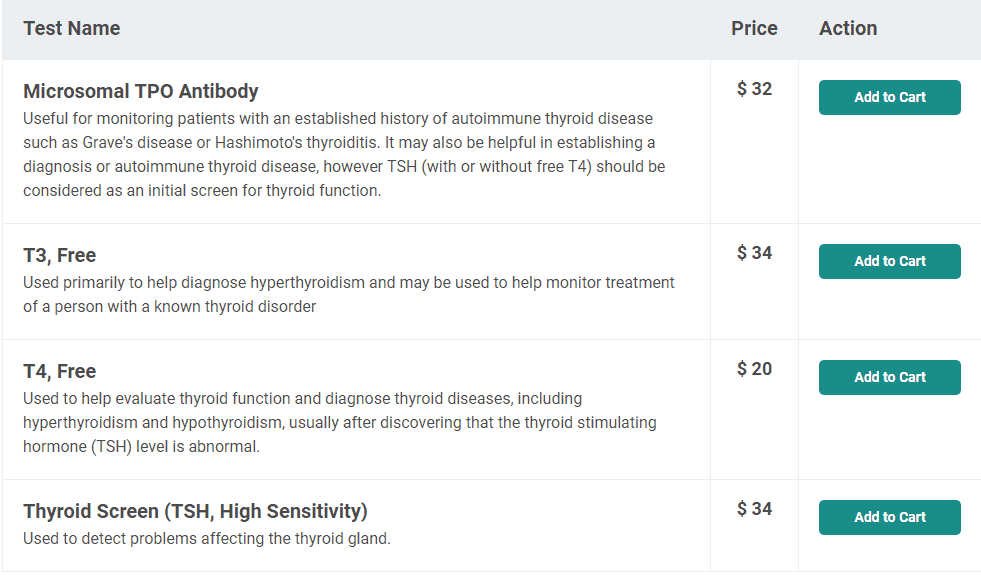
My recommendation is to try and get your physician on board to order the right tests so that insurance will cover them for you.
And don’t fall for the ‘insurance won’t cover these tests’ argument because that is simply not true.
I’ve ordered hundreds and hundreds of complete thyroid function panels and I’ve never had any issue getting them covered by insurance.
Another reason I generally don’t recommend that you order your own labs is because once you have the results you will still need a doctor to help you with treatment.
Getting your own labs can be helpful if you opt to use natural therapies, but if you plan to use thyroid medication or most other prescription hormones (such as biest or testosterone), then you will need a doctor to write a prescription for you.
Simply taking your completed labs to your doctor may not be your best option because they aren’t likely to know what to do with the results if they weren’t willing to order your tests, to begin with.
Conclusion
While you can’t directly get your labs drawn at home at your own personal request, there are still other strategies you can use to help you understand how well your thyroid is working.
The best part about these strategies is that they are easy to do, cheap, and can be effective if you use them all together.
They can also be used in conjunction with the more conventional thyroid tests including ultrasound imaging and thyroid function testing.
My recommendation is to at least give these strategies a try and see how well you perform on them!
Now I want to hear from you:
Have you ever tested your thyroid at home?
Did you have any success in doing so?
What information did you find out?
Is your resting heart rate normal? What about your body temperature?
Leave your questions or comments below!
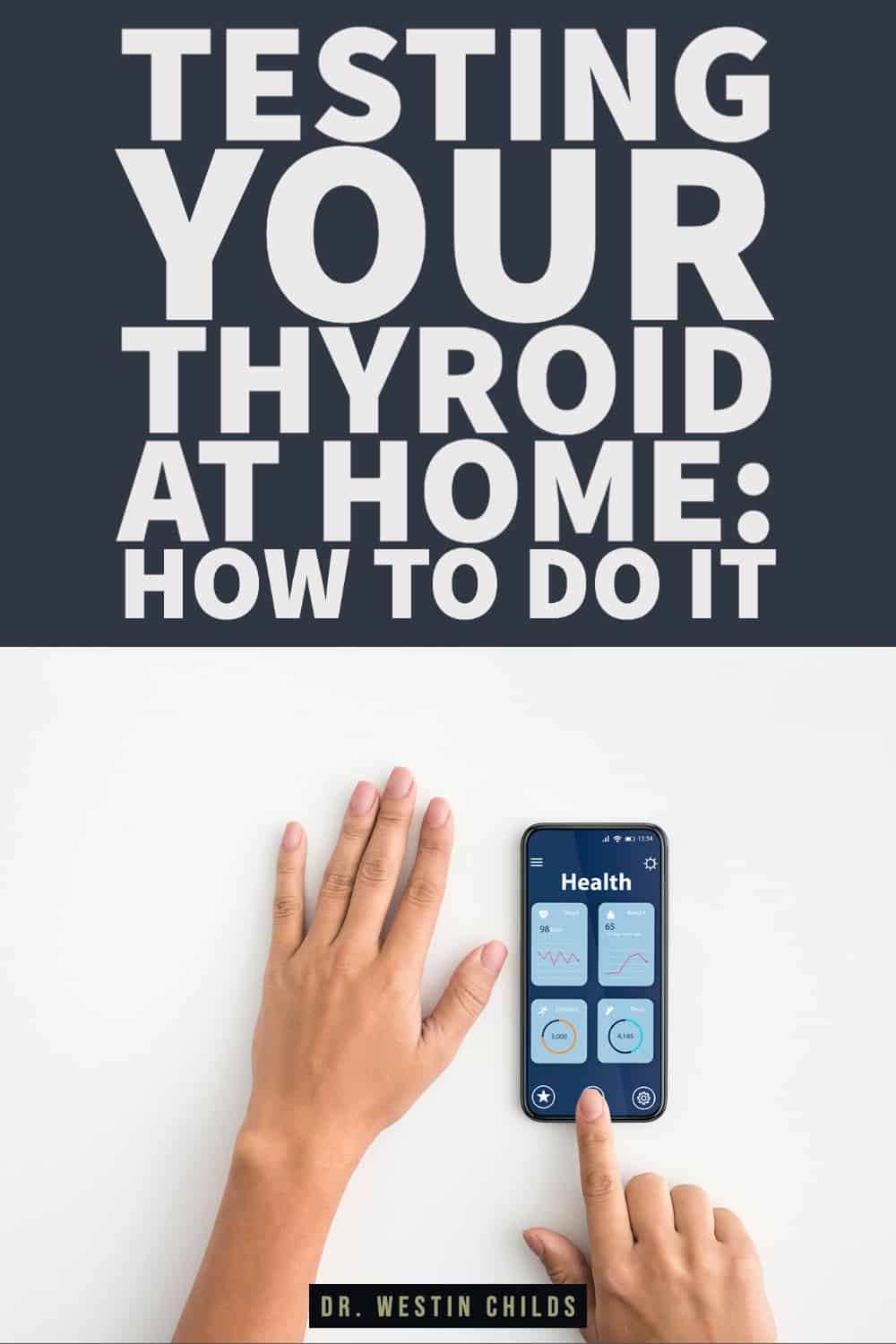
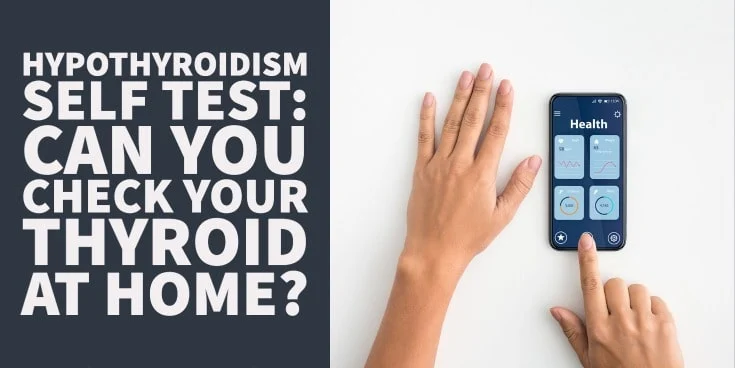
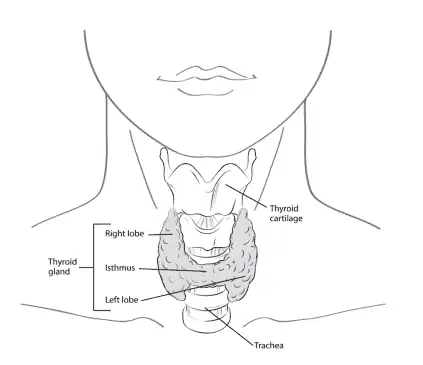
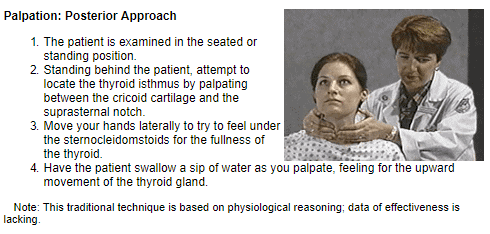







Hi, Dr. Childs
My thyroid looks as if it is shrinking from the way my neck seems to pucker where it is – like it is being sucked from inside.
I have Hashi’s (since menopause in 2010 tanked thyroid levels) and take three tabs NDT at night. Recent ultrasound elicited this comment from tester: “Your thyroid certainly is smaller than I’d expect for your stature”. But he wouldn’t be drawn on the degree of atrophy and it’ll be a couple of months until my next Endo appoint.
What do you think?
Hi Susan,
Unfortunately, there’s probably not much you can do until you get the report from your ultrasound. That will give you the information you are looking for.
Hello.
My thyroid labs have been off…. and so have my AST labs. The rest of my liver panel has been totally normal but AST is getting quite high (currently 78, the range is up to 32). I don’t drink, I’ve stopped all medication/herbs/supplements for about a month now. AST isn’t dropping. Thyroid antibodies are elevated. Is there a correlation between the two?
Hi Stephanie,
There could be, but I would put money on another cause of liver damage. Insulin resistance is much more likely to cause liver damage compared to your thyroid.
Hello Dr. Childs. I stumbled across your website a few months ago and have found the information that you provide here enlightening and useful, so thank you!
I was diagnosed with Fibromyalgia in 2012, having suffered with all of the related symptoms since my daughter’s birth in 2005, when I also developed Post-Partum Depression, which has never been resolved and became so severe that I have been on SSDI since 2008. Neither condition has been relieved by the countless medications that have been prescribed for them. In fact, I’m generally much more likely to suffer from severe side effects of medication, rather than experiencing the intended benefits. And now, after going through much of the information here, and going through the checklist you’ve provided (7 out of 10 Most Common, 37 out of the full list), I’m convinced I suffer from hypothyroidism as well.
I have a very good PCP, who is willing to discuss and consider “alternative” treatment options. For example, she has recommended CBD oil for my Fibromyalgia and I’m currently taking LDN, which I prepare myself from standard 50mg Naltrexone tablets that she was willing to prescribe, and which I first learned about here(thanks again!). I joined a Facebook group that has been invaluable for learning how to proceed with it, and though I’ve experienced some side effects, I have also experienced the first consistent pain relief I’ve had in years. I’m hopeful that, through slowly and carefully titrating up the dosage, I can find a dose that will allow me to live as pain free as possible.
However, though I was able to convince her to order the lab work recommended on this website, she remains resistant to treating me for Hypothyroidism. My labs came backs follows:
TSH 2.99
Free T3 2.5
Free T4 1.05
Reverse T3 18.5
Total T3 92
Thyroglobulin
Antibody <1.0
Thyroid
Peroxidase 11
I talked to her about "Optimal" vs. "Normal" lab results to no avail. She countered that "Optimal" labs could only be expected in someone who is at a desirable BMI. I am currently overweight bordering on obese.
My questions are:
1. Am I correct in concluding that the lab values above, along with the number of symptoms experienced, are
indicative of hypothyroidism, even though they are "Normal" labs?
2. How does an overweight/obese BMI affect an evaluation of hypothyroidism?
3. Would treatment with T3 generally be safe and appropriate for a patient with similar labs and number of symptoms?
4. Can you think of the one best study that presented to a physician, might convince them to consider treatment for hypothyroidism in the presence of "Normal" labs?
I know this is a long and detailed comment. I hope it is not too specific for you to be able to respond. I thank you in advance for your time and consideration, and again for all of the work you have put into this website!